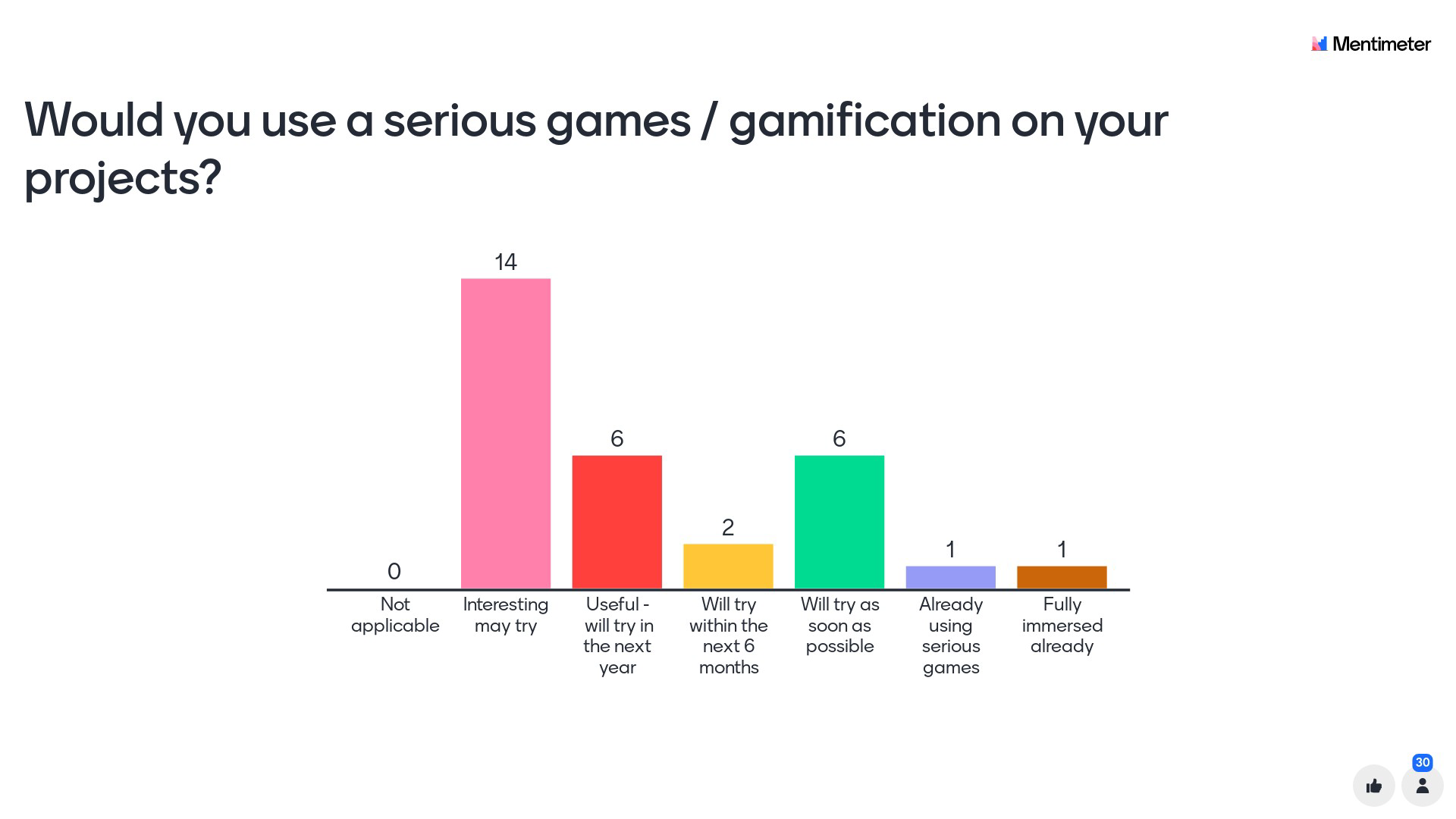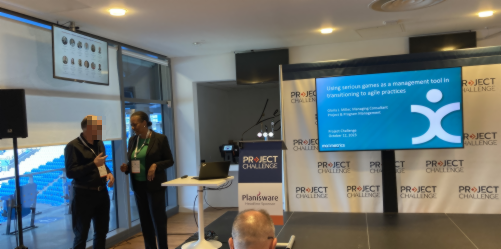Last week, we presented on serious games at the Project Challenge conference. The conference was held at the Etihad Stadium in Manchester, UK. The Project Challenge newsletter summarizes the event very well.

The presentation identified three agile principles in the Agile Manifesto (agilemanifesto.org) that could benefit from using serious games in projects. It then covered the three types of serious games that could be useful for building skills and capabilities: innovation, agile, and simulation.
About 30 people attended, and at the end of the presentation, we took a poll to judge the applicability of serious games and the propensity to apply serious games to their projects. The results showed that all people found the topic intriguing. However, only one-third would apply serious games within the next six months (see Figure 1).

Based on the questions from the audience, the reluctance to jump right into the topic appears to arise from three concerns described below. The following are our first thoughts in responding to the concerns and questions.
1) How do you sell the idea of using games?

- First, serious games are another tool or method for facilitation. Rather than having a workshop or meeting with a presenter and a group of passive listeners, serious games are a method to engage people in either the learning experience or getting them to take ownership of the outcome.
- What you are selling is not serious games per se. You are selling the use of the most effective tool to achieve your goal. Thus, consider how serious games could facilitate achieving the specific outcome when setting the objective for your training, workshop, or meeting.
2) How do you use the games with a project management group?
- Building on the answer to question 1, an additional aspect is that serious games offer a “lived experience.” Typically, a new method is introduced with a presentation or document. Here, simulation games mimic a project and offer the option to face things that cannot be felt or experienced by listening to a presentation.
- For example, the pace of planning and review occurs regularly in agile projects. Each planning session has to balance value, budget, product features, and team composition. In the game, the stress comes from other players. Players must decide quickly to keep up the game’s pace while balancing all planning aspects. The game situation builds an understanding much faster than just hearing or reading about what it means to transition to agile.
3) How do you make the games work in a virtual environment?
- Many of the materials needed for some games are basic paper, pens, sticky notes, etc. Different types of online systems and tools simulate these materials. Thus, with some forethought and research, the most serious games presented in our sessions can be recreated in a distributed environment.
Our recommendation is “just try it”. The results will be immediate, and you will receive feedback on how it works in your project or company.
***************************************************************************************************************
Watch the video where Gloria explains what maxmetrics does and how serious games support the transition from traditional/waterfall approaches to Agile. She shows how games can be used to create a safe space to collaborate with customers, strengthen team skills and capabilities, and simulate real project scenarios:
We spoke to Gloria J Millar, founder of Maxmetrics – Manchester SMEs